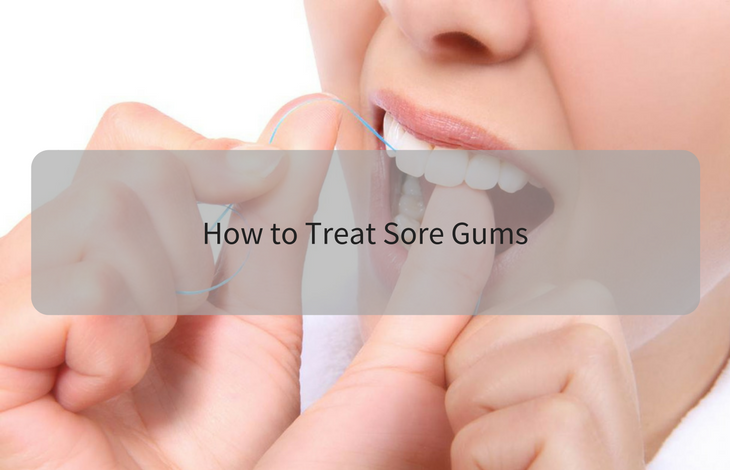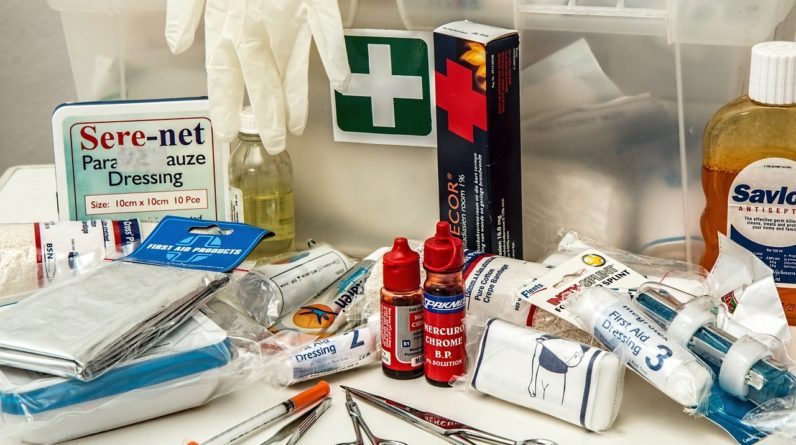
After a visit to the dentist, your mouth might feel sore and a little swollen. This is more common if you’ve had an extraction or a root canal. Some procedures like fillings or teeth whitening might also make your teeth extra sensitive. Whatever the cause may be, you’ll want to be careful what you put into your mouth, at least for a day or two.
While we often focus on discomfort in our teeth, we rarely consider our gums. A lot of times, we don’t even know there’s a problem with our gums until we bite into an apple and see stains next to the teeth marks.
Reasons Behind Sore Gums
Sore gums can be caused by many different factors. It might be a manual injury, from brushing too often or poor flossing technique. You could harm your gums by using the wrong brush or scratching your tissues on a rough bit of food. You may even have scraped your gums while using a toothpick or idly chewing on the end of a pen.
Sometimes, you develop a pimple or ulcer inside your mouth that leads to painful gums. You might even hurt yourself with a tongue or lip piercing. Other gum sores may be caused by gum disease, or by fluctuating hormones during puberty, pregnancy, menstrual flow, or menopause.
What to Do if You have Sore Gums?
Visit Dentist
When you discover pain or bleeding in your gums, visit your dentist to diagnose the problem. It might be an issue the dentist can resolve manually, or you might need some soothing gels and antibiotic medication. Don’t use over-the-counter formulations, since they might treat the symptoms and cover up a more harmful issue, so let the dentist tell you what’s what.
After your dental visit, you probably want to keep your jaws as comfortable as possible. Ordinarily, it’s a good idea to eat foods with little bites. This exercises your teeth and improves your blood flow. When your gums are sore, it’s okay to baby them too for a few days.
Change Your Diet Style
Cook your food all the way through, to make it as soft as possible without being unpalatably mushy. Or go for foods that are already soft, like mashed potatoes, legumes, yoghurt, scrambled eggs, custards, and noodles. If you’d like to eat regular food, consider blending it into a more gum-friendly consistency.
You can cut your food into smaller pieces than usual, steam and soft mash vegetables, or puree meat products. Look for soft fruits like watermelons, pawpaw, ripe mangoes, and bananas. You might also try naturally processed meals like applesauce, pear nectar, or peach cobbler.
Use Warm Salt Water
When your gums are sore, it helps to rinse your mouth with warm water and just a little salt. It has disinfectant properties, and while it might sting, it can be soothing. Some patients prefer mouthwash to salty water, and that’s fine, but avoid mouthwashes that have alcohol in them. They will irritate your gums without necessarily making them feel better.
Avoid Acidic and Spicy Food
You might also want to avoid acidic foods, even the healthy kind. Sore gums don’t respond well to orange juice, lemons, or grapefruit. For this reason, lay off the citrus for a bit.
While gargling salt might be helpful, eating salt is likely to cause a lot of discomforts. Use your own discretion regarding foods that are salty or spicy. This might be a tall order for certain cultural or regional diets, so gauge your tolerance levels to see what you can handle. If you must have spicy food, you can balance it out with some bland yoghurt or buttermilk. This trick is commonly used in pairing spicy Asian dishes.
Avoid Tomato Juice and Raw Vegetable
Another irritant that might slip under the radar is fresh tomato juice. And you’ll probably get a tangy sting from tomato-based pasta sauces, because of their acid content. Another generally healthy category you might want to avoid – just for the time being – is raw vegetables. They can rub your gums and cause more pain. You should also stay away from other rough foods like crackers, crisps, toast, and even granola.
When babies are teething, we give them textured foods like chilled carrots and celery, but your sore gums are quite different from erupting baby teeth. Handle your sore gums with a soft touch, just for a little while, and once they’re healed, you can go back to eating whatever food you like. Just be sure to brush and floss twice a day!





